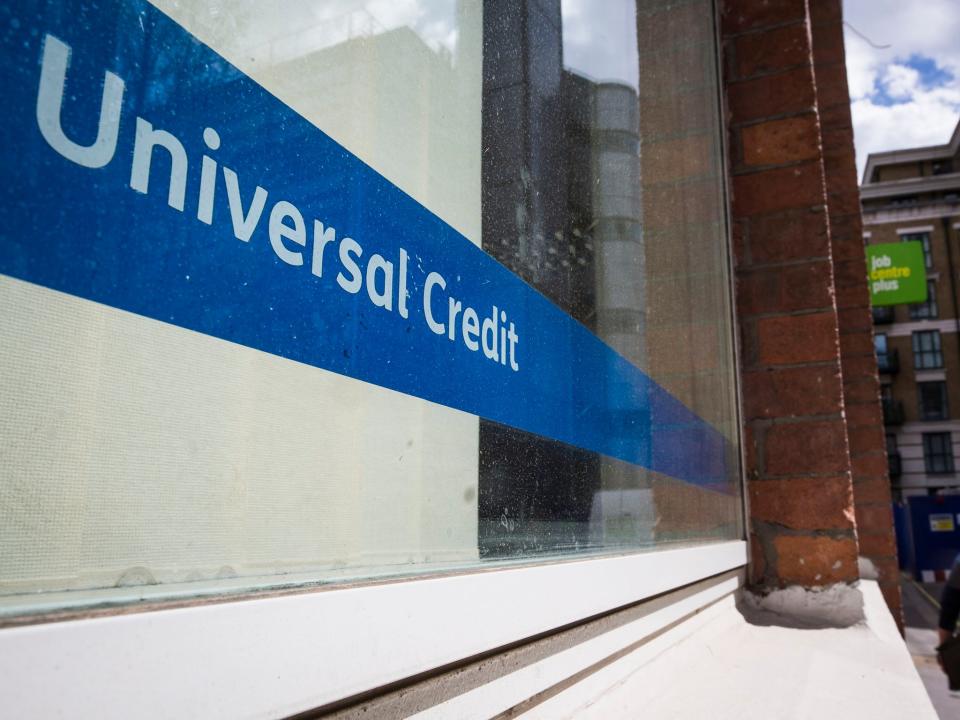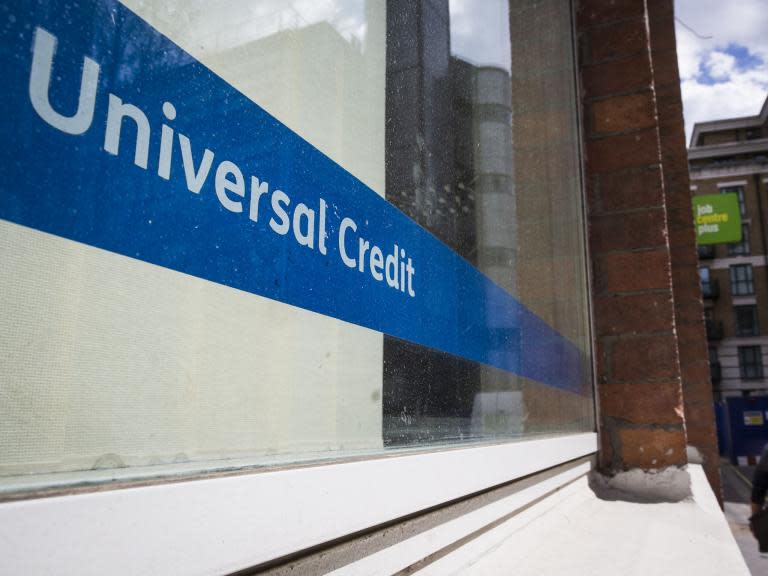Universal credit: Rent arrears more than double for benefit claimants, new figures show
Council tenants claiming universal credit have more than double the rent arrears as those who have not yet been moved onto the new benefit system, new figures show.
Ministers have been accused of “ploughing ahead” with the welfare reform despite warnings that it would lead to more people owing money on unpaid rent, after freedom of information data revealed claimants owed on average £662.56, compared with £262.50 for those still on housing benefit.
The figures, obtained by BBC Panorama, show that in Flintshire in north Wales, one of the first areas in the UK to roll out universal credit, council tenants on the new benefit owed six times as much rent as those using the old benefits system, with evictions in the county up by 55 per cent compared to the same time last year.
One claimant in Flintshire, who has been threatened with eviction after falling into rent arrears, told the programme he was already looking for somewhere to live and had “found a bridge” that he could live under.
Anthony, 63, has worked all his life but lost his job last November forcing him to apply for universal credit, which must be carried out online. Lacking basic IT skills has meant Anthony has missed appointments, which resulted in sanctions and fines with money being deducted from his universal credit payment.
The claimant, who has had to rely on food banks and, owing around £4,000 in rent, has now been told he will be evicted, told Panorama: “I’ve looked for somewhere to live and I’ve found a bridge. The only thing I’m not playing ball with is I can’t use a computer. I’m left behind.”
Flintshire council’s head of housing, Neal Cockerton, said: “We had a rent arrears position last year of £1.6m, it’s now four hundred and fifty thousand pounds worse than it was then, and a large proportion of that is solely attributable to Universal Credit.”
Introduced in 2013 to bring “fairness and simplicity” to Britain’s social security system, universal credit rolls six major working-age benefits, including job seeker’s allowance, tax credit and – crucially – housing benefit, into one payment.
Housing benefit used to be paid directly to the council and most other landlords. But now it’s part of universal credit, it’s paid straight to the claimant in one monthly sum, including the amount for rent.
In 2011, Professor Paul Hickman, of Sheffield Hallam University, carried out a study into what the effect of paying rent direct to tenants as opposed to councils would have, and found that only eight per cent of tenants managed to pay their rent in full.
But despite him presenting these findings to the government, the roll-out continued.
Professor Hickman told Panorama: “Were we ignored? Some of what we said was listened to but I think they were so committed to the course of rolling out universal credit, whatever we found they were going to continue to plough ahead.”
Richard Watts of the Local Government Association (LGA), raised concerns that the issues over increased rent arrears for those moving onto universal credit would mean councils can build less new homes.
“We need to build a lot more new genuinely affordable housing, particularly council housing – and that’s harder if councils are getting less money into their housing account because rent arrears are higher,” he said.
“This will hit the number of new council homes being built across the country at a time when we desperately need more genuinely affordable housing.”
It comes after the government announced it was going to delay migrating the majority of claimants over to universal credit for another year, as well as announcing more money for improvements to the system.
The Department for Work and Pensions (DWP) says more than 80 per cent of people on universal credit are paid on time and insists there should be no issue with landlords getting their rent paid directly to them.
A DWP spokesperson said: “Our research shows that many people join Universal Credit with pre-existing arrears, but the proportion of people with arrears falls by a third after four months.
“The best way to help people pay their rent is to help them into work, and Universal Credit is helping people to get into work faster and stay in work longer than the old system.
“We have also introduced an extra two weeks’ housing benefit for people moving onto Universal Credit from the old system, to help with the transition to monthly payments.”

 Yahoo News
Yahoo News 

